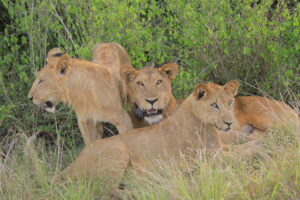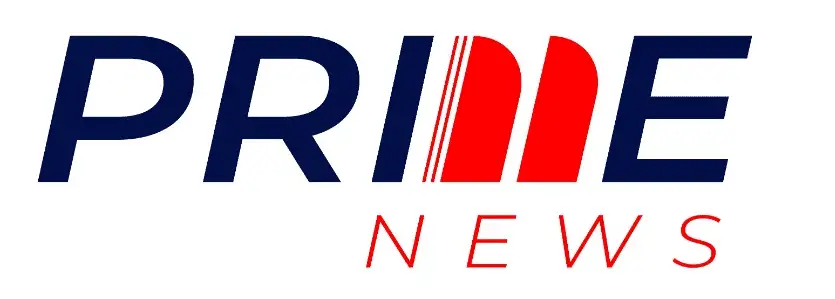By Ali Ssekatawa
The discovery of commercial oil and gas reserves in Uganda’s pristine Albertine Graben presents both an opportunity and a challenge. This ecologically rich region, home to unique wildlife, natural habitats, and abundant water and fisheries resources, also boasts a number of protected areas in Uganda, including national parks, game reserves, forests, and wetlands of international importance.
The task at hand is to navigate the delicate balance between developing the oil and gas resources, and conserving the region’s biodiversity and natural heritage.
Strengthening Policy, Legal, and Regulatory Frameworks
Uganda has taken decisive steps to ensure that oil and gas development proceeds sustainably. Robust policies and legal frameworks, such as the National Oil and Gas Policy, National Environment Act, 2019, and the Wildlife Act, 2019, have been put in place to safeguard conservation and tourism interests alongside resource exploitation.
Establishing Environmental Monitoring Tools
To sustainably manage the oil and gas developments, a suite of environment monitoring tools have been established, and are under implementation.
These include the Albertine Graben Environment Monitoring Plan, the Environmental Sensitivity Atlas for the Albertine Graben, Operational Guidelines for Oil and Gas Exploration and Production in Wildlife Protected Areas, National Guidelines for Biodiversity and Social Offsets, and the National Oil Spill Contingency Plan. These instruments guide effective environmental management and ensuring compliance in the Albertine Graben.
Enhancing Institutional Capacity
Building institutional capacity has been crucial for conserving the Albertine Graben’s biodiversity. Government agencies like the Petroleum Authority of Uganda, Uganda Wildlife Authority, National Environment Management Authority, District Local Governments, and Non-Government stakeholders, along with other stakeholders, have been equipped and trained to manage and monitor the environmental impacts of oil and gas activities.
This collaborative approach ensures that mitigation strategies are effectively implemented and continuously improved.

Adopting Improved Technology and Innovative Methods
Technological advancements and innovative methods have been employed to minimize the environmental footprint of oil and gas operations. Notable initiatives include:
- Cableless Technology (Z-land nodes): This technique was used for acquiring 3D seismic data without laying cables on the ground, reducing the physical footprint in protected areas.
- Wildlife-Friendly Equipment: Using warm colour lighting ranging from yellow to Orange is more eco-friendly and which contains less visible long-wavelength radiation, minimizes light pollution, glare and prevents wildlife attraction.
- Silent Walking Rigs: These rigs are equipped with custom soundproofing and acoustic enclosures to minimize noise pollution.
- Well Placement and Geo-Steering: This technology allows for the drilling of highly deviated or horizontal wells from a single well pad, reducing surface impact by clustering multiple wells.
- Horizontal Directional Drilling (HDD) at the Nile River Crossing: instead of open-cut method, the HDD technique has been adopted to avoid impacting the River Nile and Ramsar site with species of high conservation value.
Habitat Mapping and Species-Specific Surveys
Comprehensive habitat mapping and species-specific surveys have been conducted to understand the ecological characteristics of the Albertine Graben. Studies on animal ranging behaviour, stress levels, and population dynamics for species such as the African lion, African elephant, spotted hyena, reedbuck, hartebeest, Uganda Kob and vultures provide critical data.
This information informs project designs and helps develop effective mitigation measures, establishing benchmarks for evaluating ecological changes during oil and gas development.
Survey Results
From 2019 to 2023, surveys revealed no significant changes in habitat utilisation, animal behaviour, or stress levels. Studies between 2022 and 2023 on lion and hyena populations in Murchison Falls National Park (MFNP) indicated steady population growth, with no shifts in territorial ranges. Wildlife camera traps around well pads confirmed stable lion prides and hyena clans.
Studies on elephants also showed that oil exploration activities have had minimal effects on the ranging patterns of elephants, as elephant range size did not differ significantly during the period of oil exploration compared with subsequent years with no exploration.
Monitoring of elephant ranging patterns within the MFNP project footprint using satellite radio telemetry since 2013 has shown stable behaviours. Data from 2016 to 2024 indicates no significant changes.
The continued monitoring has also shown that several factors influence ranging of elephants including climatic seasons, fires and historical ranges. Particularly the elephants moved widely more significantly during dry seasons in search for resources such as food and water, and this also coincides with the harvest period of crops in community areas.
Continued Monitoring and Conservation Actions
Ongoing habitat and biodiversity surveillance will continue throughout the development and production phases, focusing on species ecology and population dynamics, threats such as poaching activities, land cover, and habitat management. This continuous effort aims to identify the drivers of change affecting biodiversity as regards to the development and implementation of practical conservation actions.
Aerial Wildlife Census
An aerial wildlife census for large mammals in 2022 highlighted that generally the Tilenga project areas host the highest number of animals in the park. Increased surveillance and workforce presence have reduced poaching, while enhanced ranger patrols using the Spatial Monitoring and Reporting Tool (SMART) have achieved significant anti-poaching milestones, including the removal of 5,608 wire snares and the arrest of 133 poachers, as of June 2024. As of June 2024, 177 UWA rangers have been trained in use of SMART to enhance ranger patrols.
Economic Growth and Sustainability
The continued investment in the oil and gas sector for FY 2024/2025 is expected to contribute to a projected 6.5% growth in Uganda’s economy.
With the first oil on the horizon, the commercialization of these resources is set to generate significant revenue, aiding the socio-economic transformation of Uganda. Balancing the sustainable use of natural resources, economic growth, and environmental conservation remains a priority as Uganda charts its path to prosperity.
Ali Ssekatawa is the Director Legal and Corporate Affairs at the Petroleum Authority of Uganda
Email: corpoarateaffairs@pau.go.ug

